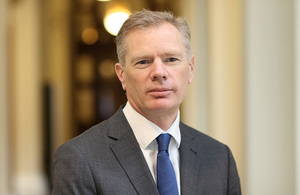News story: Consultation into strengthening teacher-examiner safeguards
Ofqual has today (14 March 2018) set out how it intends to strengthen its regulation of awarding organisations’ involvement of teachers in the development of confidential assessment materials. Today’s consultation reflects detailed analysis of existing processes and extensive discussions with awarding organsiations, examiners, teachers, students and parents. The new regime, if confirmed, will extend to all regulated qualifications.
The proposals include:
- explicitly setting out in our rules steps awarding organisations must take to help protect the integrity of the assessments to which teachers have contributed; and
- publishing further statutory guidance to help awarding organisations understand the factors and approaches they should consider when deciding how to comply with the rules.
Consistent with these proposals, teachers will continue to be able to write assessments and have access to confidential materials. However, awarding organisations must maintain up to date records of all conflicts of interest relating to teachers who have seen confidential assessment materials. And they must review their safeguards such that they are appropriate and proportionate to:
- effectively mitigate the risks of using teachers in the development of assessment materials, for example by making sure no teacher knows whether or when any assessments they have developed will be used;
- support teachers to do the right thing, through appropriate training and contractual obligations;
- detect malpractice, for example by sampling the work of teachers who have written exam papers to look for any unusual patterns of response.
We are also stressing that the way in which awarding organisations have regard to our guidance will be taken into account when deciding on the nature and scale of any regulatory action should a breach of confidentiality occur.
Timing
The exam boards who deliver GCSEs, AS and A levels and other qualifications used as equivalents, such as the Pre-U have already written the exams for summer 2018. Safeguards for 2018 will, therefore, need to focus on deterring and detecting malpractice and on supporting teachers. These awarding organisations have published a joint statement setting out their intentions for this summer. Subject to the outcome of the consultation, and where necessary, we expect that all awarding organisations will have made significant progress in terms of the safeguards they employ by summer 2019, and have fully revised their approaches by 2020. This transition period is necessary to avoid introducing an unacceptable degree of risk to the delivery of safe qualifications.
Sally Collier said:
“Almost universally, respondents to our call for evidence emphasised the importance of retaining a strong link between teaching and examining, and the benefit it brings to assessment design. Our rules on confidentiality and malpractice are already demanding. The proposals we have put forward today build on them and provide greater clarity about our expectations and the implications for awarding organisations if information about an assessment is disclosed by a teacher who has been involved in its development. There is no one-size-fits-all solution to the challenge of maintaining confidentiality. However, the events of summer 2017 showed how public confidence in assessments and, in turn, qualifications, can be damaged if confidential information is wrongly used. It is essential that those who take or otherwise rely on qualifications have upmost confidence in the outcomes.”
Background
- In September 2017 we announced we would review:
- the risks and benefits of the long-established practice whereby some teachers who write or contribute to exam papers also teach the qualification; and
- the effectiveness of the safeguards used to reduce the risk of a teacher who has this dual role disclosing or otherwise misusing information about confidential assessments.
We are publishing a suite of research and analysis today that provides context and support to our consultation proposals.
- a summary of our call for evidence into the benefits and risks of teachers being involved in the development of qualifications that they teach
- interviews with teacher-examiners about the risks and benefits of their involvement in developing assessment materials
- a review of safeguards used to prevent disclosure of confidential material in countries outside England
- a review of safeguards used to prevent disclosure of confidential material in countries outside England
- interviews with students studying for AS/A levels, and parents of secondary school aged children, to understand their views on teacher involvement in writing exams
- research into the sources of, and ways of identifying anomalous responses in test scores.
ENDS
